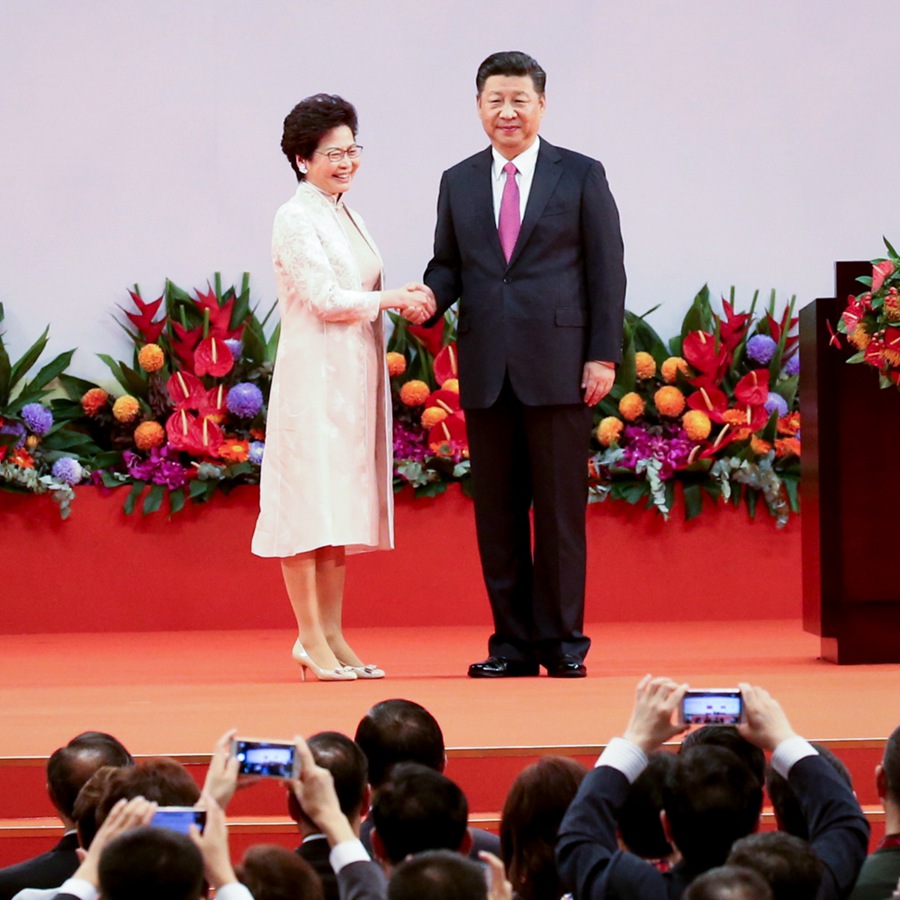HK 20 years on
Hong Kong is associated with the many memorable and remarkable moments in my more than 30-year career as a photojournalist. In the past two decades, since Hong Kong's return to the motherland, I've had several occasions to observe the city from up-close. While certain things seem to have remained unchanged, such as following the "one country, two systems" principle, some others have moved forward in keeping with the city's evolution into a modern, global metropolis.
I visited Hong Kong for the first time in June 1997. I witnessed the historic moment on the night of June 30, 1997, and recorded it on my film camera, capturing the ceremony at the People's Liberation Army Hong Kong Garrison's Central Barracks. On July 1, I was busy covering various events to mark the establishment of the HKSAR. I carried a telephoto lens and an aluminum ladder on my shoulder, running around all across the city. For a while I parked myself in front of the government headquarters and then stood in a queue at the old site of the Legislative Council. I also went to the stock exchange in Central.
In the next two and a half years I covered several important events in Hong Kong. I was sent here to capture the stock market crash during the 1997 Asian financial crisis, and again to photograph the impact of the Standing Committee of the National People's Congress' interpretation of Hong Kong's Basic Law regarding the right of abode case in 1999. I covered the outbreak of bird flu and many other breaking news and social events in the city.
I was transferred back to the Chinese mainland in 2000 but Hong Kong was never far from my mind.
Now I am back in the city, camera in hand, wandering around, revisiting the places I had last seen 17 years ago.
The old LegCo building, which now houses the Court of Final Appeal, is still popular with the Filipino domestic workers for their weekend gatherings. I saw more free newspapers at MTR stations but fewer newspaper stands at the Star Ferry Pier. While many new stocks have arrived in the market, the trading hall is smaller than before with fewer traders visible in action. Hong Kong's Hang Seng Index has climbed from 16,000-something points two decades ago to 25,000 points today.
The Chinese leader Deng Xiaoping's promise that the dancing and horse racing will continue in Hong Kong after 1997, under the "one country, two system" principle and the Hong Kong Basic Law, seems to have been honored.
And did I forget to add that many people I met on the street this time spoke fluent Mandarin?
Hong Kong today is indeed a city full of extraordinary vitality. Its current prosperity and optimism is owed to its international outlook, high energy, determination and competitive spirit.













